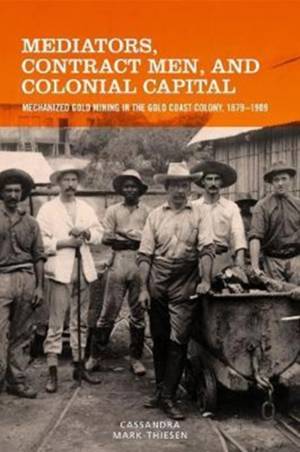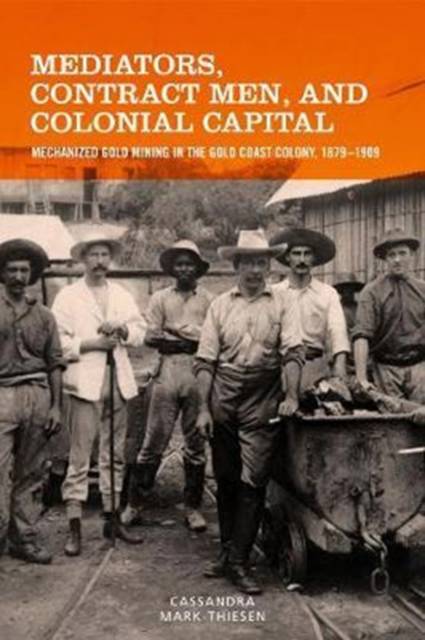
- Retrait gratuit dans votre magasin Club
- 7.000.000 titres dans notre catalogue
- Payer en toute sécurité
- Toujours un magasin près de chez vous
- Retrait gratuit dans votre magasin Club
- 7.000.000 titres dans notre catalogue
- Payer en toute sécurité
- Toujours un magasin près de chez vous
Mediators, Contract Men, and Colonial Capital
Mechanized Gold Mining in the Gold Coast Colony, 1879-1909
Cassandra Mark-ThiesenDescription
Recent years have seen renewed interest in the historical study of labor in Africa. Unlike those of the past, these studies are rooted in the recognition of Africa's dynamic, expansive, and productive informal sector. While focusing on one of West Africa's earliest large-scale industries, namely the Wassa gold mines in the southwest Gold Coast, this book is not solely concerned with the traditional working class. Rather, it explores the plurality of labor relations that characterized the mining concessions during the period 1879 to 1909, including the presence of migrants from various parts of West Africa as well as casual and tributary laborers, both male and female. In capturing the phenomenon of labor mobility as it played out in Wassa, the book presents one of the fullest accounts of the labor agents who regularly brought groups of migrant laborers to the mines. The narrative discusses these agents' means of employment and roles in the informalization and indentureship of labor; in addition, it explores the regional dynamics of the recruitment machinery and confronts issues of coercion and choice. Scholars interested in African history, global labor history, economic history, and women's work in Africa will find much of value in this innovative study. Cassandra Mark-Thiesen is a Research Fellow of the Swiss National Science Foundation (Marie-Heim Vogtlin Grant) in the history department of the University of Basel.
Spécifications
Parties prenantes
- Auteur(s) :
- Editeur:
Contenu
- Nombre de pages :
- 230
- Langue:
- Anglais
- Collection :
- Tome:
- n° 77
Caractéristiques
- EAN:
- 9781580469180
- Date de parution :
- 05-03-18
- Format:
- Livre relié
- Format numérique:
- Genaaid
- Dimensions :
- 152 mm x 231 mm
- Poids :
- 476 g







